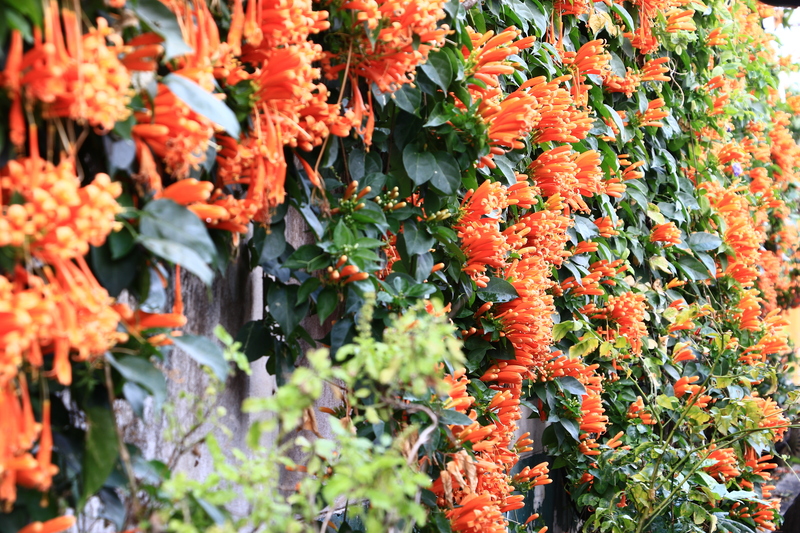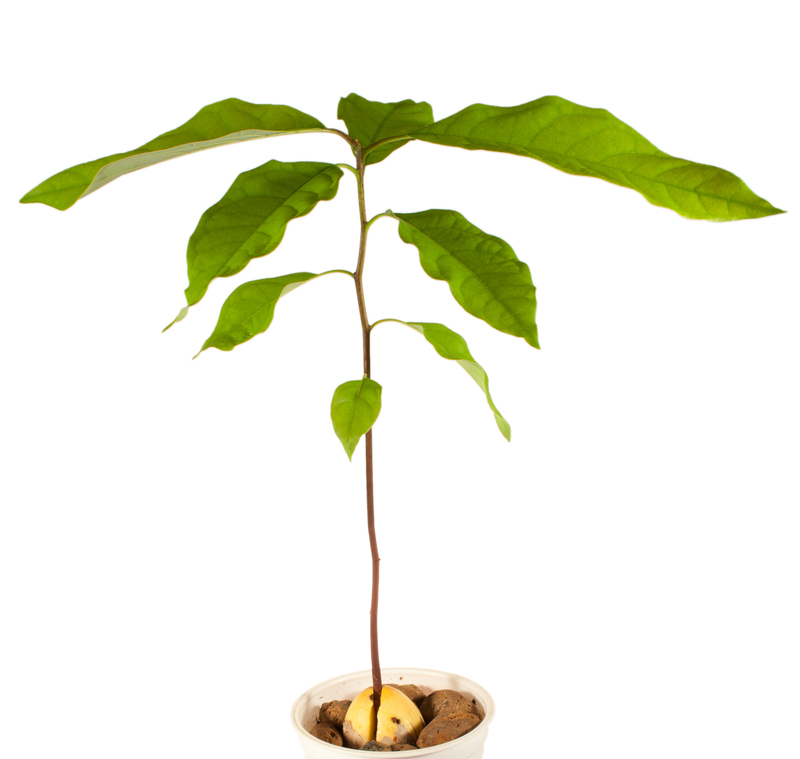Keep Your Garden Plants Safe This Winter
Posted on 18/06/2025
Keep Your Garden Plants Safe This Winter: The Complete Guide
As the cold months approach, gardeners everywhere start to worry about their beloved green spaces. Harsh weather, frost, and fluctuating temperatures can wreak havoc on even the most resilient of plants. But there's good news: with careful preparation and a little know-how, you can protect your garden plants in winter and ensure they thrive when spring arrives. In this comprehensive guide, you'll find practical tips, expert insights, and everything you need to know to keep your garden plants safe this winter.

Why Winter Protection is Essential for Garden Plants
Many plants enter a resting phase during the winter, but that doesn't mean they're immune to the elements. Cold, wind, snow, and ice can cause winter damage to garden plants, from desiccation to root injury. Some perennial and container plants are especially vulnerable, while even hardy shrubs and trees can suffer in extreme weather. Knowing how to prepare and protect your garden is the key to winter plant survival.
Common Threats to Plants During Winter
- Frost and freeze: Rapid temperature drops can damage or kill tender growth.
- Wind: Cold winds dry out plant tissues, causing winter burn.
- Snow and ice: Heavy accumulation can break branches and compact soil.
- Fluctuating temperatures: Thawing and refreezing can cause root heaving and split bark.
- Desiccation: Dry winter air pulls moisture from leaves and stems, especially evergreens.
Practical Strategies to Keep Your Plants Safe During Winter
1. Mulching: The First Line of Defense
Mulch acts as a protective blanket over your garden beds. By applying a thick layer of organic material, you insulate roots against freezing temperatures and prevent the soil from repeatedly freezing and thawing (which can push plants out of the ground).
- Use straw, shredded leaves, bark chips, or pine needles for best results.
- Apply 2-4 inches of mulch around the base of your plants, being careful to keep mulch away from stems to prevent rot.
- For extra protection, wait until after the first hard frost to mulch, which encourages plants to enter full dormancy.
2. Watering Before the Ground Freezes
Moist soil retains heat better than dry soil. Give your garden a deep, thorough watering before the first deep freeze, especially for evergreens and late-season perennials. Avoid overwatering, which can lead to root rot, but make sure your soil isn't parched.
3. Provide Wind and Cold Protection
Windbreaks such as fences, burlap screens, or even natural hedge rows protect vulnerable plants from chilly gusts and sudden exposure. For delicate shrubs and young trees:
- Wrap with burlap or horticultural fleece, leaving the top open for air circulation.
- Build DIY shelters using old sheets or reusable plant covers for individual specimens.
- Group potted plants together in a sheltered spot for collective warmth.
4. Insulate Containers and Potted Plants
Pots and containers freeze more quickly than in-ground beds, which can kill roots. To protect container plants in winter:
- Move pots to protected areas like garages, sheds, or near south-facing walls.
- Wrap containers with bubble wrap, burlap, or blankets for additional insulation.
- Raise pots off the ground with bricks or pot feet to prevent waterlogging and frost damage at the base.
5. Protecting Young Trees and Shrubs
Freshly planted trees and certain ornamentals are particularly sensitive to winter conditions. To prevent bark splitting, rodent damage, and dehydration:
- Wrap trunks with tree guards or spiral protectors.
- Install chicken wire cylinders around the base to keep out rabbits and voles.
- Mulch generously to insulate root balls, but avoid piling against the trunk.
Winter Care for Different Types of Plants
1. Perennials
Hardy perennials usually survive winter, but late-season pruning or insufficient mulch can harm them. Cut back spent stems only after the first frost to prevent disease, and leave dried foliage for added protection if local wildlife isn't an issue.
2. Annuals
Most annuals complete their life cycle in a single year. Remove spent plants, compost healthy material, and discard diseased specimens to prevent winter pest issues. Consider sowing winter annuals or cover crops to protect bare soil.
3. Evergreens
Evergreen shrubs and conifers lose moisture throughout winter and may develop brown tips due to desiccation. Keep plants well-watered in fall, mulch roots, and consider anti-desiccant sprays if your climate is especially dry or windy.
4. Bulbs
Spring-flowering bulbs like tulips, daffodils, and crocuses need protection from severe freezing. If you live in regions with harsh winters, plant bulbs deeper and cover beds with extra mulch or pine boughs to help protect bulbs during winter.
5. Vegetable Gardens
Cold-hardy vegetables such as kale, spinach, and carrots can stay in the ground into winter. Use row covers, cloches, or cold frames to create microclimates and extend the harvest season, while also sheltering sensitive greens.
Dealing With Extreme Winter Weather
Snow Accumulation
While a fresh layer of snow can insulate plants and shield them from windburn, heavy accumulations may break branches or smother low plants. Gently brush snow off evergreens with a broom after storms, but avoid shaking frozen branches to prevent breakage.
Ice Storms
Freezing rain and ice can cause severe damage in winter. Don't try to remove ice forcibly; let it melt naturally to minimize injury to plants. Prune damaged branches in early spring, and support bent shrubs with stakes if necessary.
Sudden Thaws and Deep Freezes
Fluctuating temperatures are especially hard on garden plants. To help minimize freeze-thaw stress:
- Ensure good drainage to prevent water pooling around roots.
- Add extra mulch in mid-winter if extended thaws are forecasted.
- Check protective coverings after storms and repair as needed.
Common Mistakes to Avoid in Winter Plant Care
- Using plastic sheeting directly on plants: This can trap moisture and cause rot. Always use breathable materials like burlap or frost cloths.
- Overwatering container plants: Water only when the soil is dry to the touch; too much water leads to freezing and root rot.
- Fertilizing late in the season: This stimulates new growth that is vulnerable to frost damage. Stop fertilizing by late summer or early fall.
- Neglecting young or newly planted trees and shrubs: These need extra insulation and protection during their first winter.
- Leaving leaves or debris matted over crowns: While mulch and leaf cover insulate, too much can suffocate perennials and encourage disease.
Top Tools and Materials for Winter Plant Protection
- Mulch (straw, bark, compost, pine needles)
- Burlap wraps or frost blankets
- Garden stakes and twine for securing covers
- Fleece jackets and plant domes for tender perennials
- Tree trunk guards and wire mesh to ward off wildlife
- Anti-desiccant sprays for evergreens
- Pot feet or bricks to elevate containers
Winter Plant Safety Checklist
- Assess plant hardiness zones and select appropriate winter protection methods.
- Apply mulch after the first frost.
- Water plants deeply before the ground freezes.
- Wrap trunks and protect branches of vulnerable trees and shrubs.
- Shelter container plants or insulate containers.
- Use breathable fabric covers for frost-sensitive plants.
- Monitor weather and adjust protection after severe storms.

Frequently Asked Questions About Keeping Garden Plants Safe During Winter
How early should I start protecting my plants for winter?
It's best to start preparing your garden in late autumn, typically after the first hard frost. This ensures plants are dormant and less prone to rot or fungal diseases when covered or mulched.
Which plants need the most protection?
Newly planted trees and shrubs, tender perennials, tropical plants, and container-grown specimens are most at risk during winter and benefit from extra insulation or shelter.
Is snow good or bad for my winter garden?
Light snow acts as an insulating blanket, helping to protect plants from freezing temperatures. However, too much snow can physically damage branches and stems.
Do I still need to water my plants in winter?
Yes, especially in dry winters. Water on mild days if the ground isn't frozen, focusing on evergreens and new plantings. Avoid overwatering, which can cause root issues.
Can I use household items for winter plant protection?
Absolutely! Old sheets, towels, bubble wrap, and cardboard boxes can all serve as makeshift covers or insulation in a pinch.
Final Thoughts: Ensure Your Winter Garden Thrives
With a little foresight, you can keep your garden plants safe this winter and set the stage for a flourishing spring. Remember to monitor local weather, adapt techniques to your plant varieties, and regularly check your garden throughout the season. With these strategies and a proactive approach, your green oasis will weather winter's challenges and emerge lush and vibrant as the warmer days return.
Now is the Time: Prepare and Protect!
Don't wait until the first cold snap to take action. Start safeguarding your plants today with these essential winter garden care steps, and enjoy peace of mind knowing your outdoor haven is ready for whatever winter sends your way!
- Mulch generously, but with care.
- Water wisely, particularly evergreens.
- Shelter containers and wrap tender specimens.
- Remove snow from branches after heavy storms.
- Stay vigilant and check protections after wind or ice events.
By following this ultimate guide to winter plant safety, you'll be well-equipped to protect your garden plants from winterkill, frost, and other seasonal hazards. Here's to a healthy, happy garden all winter long!
```Latest Posts
Creating Endless Adventures in a Child-Friendly Garden
Explore the Basics of Growing a Successful Herb Haven
Turning Your Garden into a Sanctuary with Seating Ideas
Waste Not, Want More: Organic Waste's Journey to Fertile Ground
.jpg)


